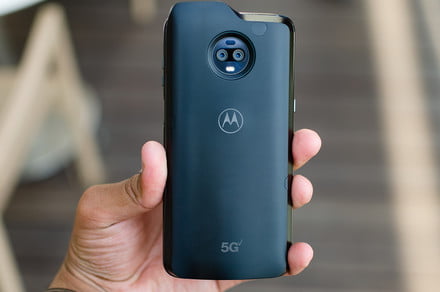Julian Chokkattu/Digital Trends
Mobile carriers have touted 5G as the next giant leap in wireless communication and technology, with expectations to impact health care, transportation, and robotics to name a few. Despite the buzz and pending implications, 5G is only available in select cities, and typically in even more select areas of those cities. That hasn’t thwarted people from buying 5G phones, though.
A new report from global research firm, Counterpoint Technology Market Research, states that the majority of 5G smartphone sales in the month of May came from areas that currently don’t have 5G service.
“The top 10 cities [with 5G infrastructure] make up just one-third of all 5G smartphone sales in May,” Tom Kang, research director at Counterpoint.
Subverting expectations that 5G smartphone sales would be highest in the areas that support the service, the data shows people are ready for a 5G future and don’t want to be left behind when it comes — or they just want the latest and greatest.
Counterpoint Research
Larger cities like Dallas, Houston, and Los Angeles make up three out of the top five regions selling the most 5G phones. Chicago, a city which has a growing 5G presence, holds the largest single portion of 5G phone sales, while Atlanta, another 5G-capable area, rounds out the top five.
Almost every major phone manufacturer is expected to release 5G phones through 2019, with the exception of Apple. Counterpoint’s report predicts more than 5 million 5G smartphones will be sold in 2019, and notes this projection would be as much as 60% higher were Apple to release a 5G iPhone in 2019, which isn’t expected.
Before you go rushing out the door to buy your own blazing-fast 5G device, just keep in mind that network roll out from carriers is expected to take years, and the service will complement 4G LTE for the near future. As we noted in our tests on Verizon’s Moto Z3 with 5G Moto Mod, the LG V50 ThinQ on Sprint, as well as the Galaxy S10 5G on Verizon and T-Mobile, 5G delivers fast speeds, especially when using mmWave spectrum, but it also tends to suffer from poor range and penetration through cars and buildings.
AT&T and Verizon customers hoping for blanket 5G coverage will have to wait quite some time, as the technology being utilized will essentially require 5G nodes on every block. Sprint and T-Mobile customers may get more coverage sooner, due to their use of mid-band and low-band frequencies, which offer more range and better building penetration but slower speeds.
We all want the future here now, but perhaps we could also save a few bucks until it gets here.
Editors’ Recommendations
- 5G smartphones are on the way: Here’s every phone that will support 5G
- What is 5G? Here’s everything you need to know
- Verizon 5G rollout: Here is everything you need to know
- Sprint’s 5G rollout: Everything you need to know about it
- Verizon’s 5G is blazing fast on the Galaxy S10 5G, if you’re on the right block

